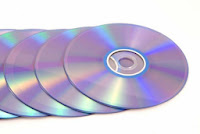Everyone has a brand, but one of the problems that most musicians, artists, bands, songwriters, engineers and producers have is that they don't understand exactly what their brand is. It's difficult to stand out from the crowd unless you have a really good idea of your brand and know how to develop it.
Here's an excerpt from
Social Media Promotion For Musicians: The Manual For Marketing Yourself, Your Band And Your Music Online, that describes the 8 steps to develop your brand.
"While the music that you play or create is totally up to you and outside the realm of this book, what we can deal with is the second part of the brand - your image. Here are some steps to take to refine your brand.
1. Make sure your brand image accurately portrays your music and personality. If you’re a biker band, you probably don’t want a website that’s all pink and flowery. On the other hand, the pink works great for Katy Perry. Likewise, if you’re an EDM artist you wouldn’t want your site to show the woods and trees, although that could work well for an alt rock band from Minnesota or someone doing music for meditation.
2. Keep it honest and simple. Don’t try to be who you’re not, it’s too hard to pull off. You are who you are and people will either love you for it or they won’t. While you can concoct a backstory where you were taught a new form of music by aliens, then honed your technique in the jungles of Brazil, that just sets your brand up to fail if you really can’t live up to the image that’s been painted. Best to keep things simple and be honest about who and what you are and where you came from. If people like what you do and can relate to you, that will shine through and your fans will not only find it interesting enough, but will be totally fascinated as well.
3. Differentiate yourself. While it might seem tempting to proclaim that you’re just like Coldplay, that doesn’t immediately make you their equal in the eyes of the public. The fact of the matter is, there already is a Coldplay, why does the world need another one? It’s their brand, not yours. The only way that a brand can be successful is to differentiate itself from the competition. A great example is the seminal punk band The Ramones, who decided that all their songs would be as short as possible and played without solos. There must be something that makes you unique in even a small way. If you can’t find it, it may be time to go back to the drawing board.
4. Keep the look consistent. Consistency of product and image are the key to branding. That’s why you need to use the same logo and fonts and have the same general look and feel across all your promo for it to be effective. That includes your website, press kit, blog, newsletter and all social media.
5. Create a remarkable logo. This is a requirement if you’re planning to promote your brand. You need this for your website, social sites, merchandise, press kit, promo and on your stage during gigs. In short, it has to be part of everything you do. You may start promoting yourself without it, but it’s a big plus if you already have a logo. It separates you from the newbies. Just as an example, here are a few unmistakable musician’s logos in Figure 3.1.
If you’re a musician without a band, a producer, songwriter or engineer, it doesn’t mean that you must also have a logo as well (although it would be better), but at the very least, use the same font for your name on your blog, website, newsletter and anywhere else it might appear.
6. Great photos are a necessity. You need first class photos for posters, merch, website, social networks, press kits, and a lot more if you want to build your brand. This is as important as the logo - you need a great photo in order to begin any kind of promotion. Have you ever seen a Facebook page or website of a major artist without an artist or band photo?
7. Give away samples. Learn this phrase well as it will be repeated throughout this book.
Your music is your marketing.
That means that you can’t look at your music as your product. It may bring in some money eventually but not all that much in the grand scheme of things. Remember that 90 to 95% of the money that a major artist earns is not from recorded music. It’s from concerts, merchandise, publishing and licensing.
TIP: Don’t be afraid to give your music away. It’s your best marketing tool and the best way to build your brand.
8. Cool is never declared. You cannot proclaim how new and unique you are. If such a statement is in fact true, people will find out soon enough and tell the world. You can use quotes from other people, but telling the world that you think you’re cool does not make it so.
These are not the only steps that you can take, but they’ll take you a long way to creating a brand image that works for you."
----------------------------------
Follow me on Forbes for some insights on the new music business.
You should follow me on Twitter and Facebook for daily news and updates on production and the music business.



